 Your new post is loading...
 Your new post is loading...
Research shows that hands-on learning is an effective way to teach students science. A 2009 study found that eighth-grade students who were involved in hands-on science projects demonstrated a deeper understanding of concepts than students who were taught with traditional methods such as textbook readings, lectures, and tests (Riskowski et al., 2009).
Why is hands-on learning effective? We can look to neuroscience for insight. Students who participate in science experiments, instead of just observing them, have a deeper conceptual understanding of science. Through brain imaging, researchers found that physical experience activates the sensorimotor region of students' brains, which helps reinforce what they're learning (Kontra et al., 2015). If students use their hands as well as their minds, they're essentially learning twice. Learn more / En savoir plus / Mehr erfahren: https://gustmees.wordpress.com/?s=maker https://www.scoop.it/t/21st-century-learning-and-teaching/?&tag=Ideas+for+makerspaces
Via Gust MEES
21 ways to unlock creative genius | #Creativity #Infographic
21 ways to unlock creative genius | #Creativity #Infographic
This phenomenon — testing yourself on an idea or concept to help you remember it — is called the “testing effect” or “retrieval practice.” People have known about the idea for centuries. Sir Francis Bacon mentioned it, as did the psychologist William James. In 350 BCE, Aristotle wrote that “exercise in repeatedly recalling a thing strengthens the memory.”
But the testing effect had been mostly overlooked in recent years. “What psychologists interested in learning and memory have always emphasized is the acquisition part. The taking [information] in and getting it into memory,” Roediger said.
Laypeople — and even experts — tend to think of human memory as a box to be packed with information. “Memory is dynamic, and it keeps changing,” McDaniel said. “And retrieval helps it change.” Learn more / En savoir plus / Mehr erfahren: http://www.scoop.it/t/21st-century-learning-and-teaching/?tag=Brain
Via Gust MEES
“Skills young people should be learning to be prepared for a career in 2020 include:
The ability to concentrate, to focus deeply.
The ability to distinguish between the “noise” and the message in the ever-growing sea of information. The ability to do public problem solving through cooperative work. The ability to search effectively for information and to be able to discern the quality and veracity of the information one finds and then communicate these findings well. Synthesizing skills (being able to bring together details from many sources). The capability to be futures-minded through formal education in the practices of horizon-scanning, trends analysis and strategic foresight.” Learn more / En savoir plus / Mehr erfahren: https://gustmees.wordpress.com/2015/05/26/what-are-the-skills-needed-from-students-in-the-future/
Via Gust MEES
What is Phenomenon-Based Learning?
Finland will go through a new education reform that will take over in the academic year 2016-2017. Phenomenon-Based Learning will be complementing Finland’s traditional subjects. The Phenomenon or Topic Based Learning is being planned to be conducted over periods during the year and could be paced in projects – is the old new in Finland’s education. For more than three decades, Finnish schools have had a form of Phenomenon-Based Learning. What will change in 2016-2017 is that it will be obligatory in all basic schools for seven to 16-year-olds.
Phenomenon-Based Learning tackles real-world scenarios holistically from different subject areas’ perspectives. This method will entail a rich learning experience, which is relevant to learners’ lives. The interdisciplinary learning could be conducted in a simple way, by linking similar knowledge areas between different subjects and introducing them at the same slot of the academic year. This develops awareness of how curricula intersect to form the broader frame of knowledge. A more sophisticated interdisciplinary approach, such as Phenomenon-Based Learning occurs when we go beyond simply linking different subjects to applying, organising centers and essential questions to plan topic teaching. One example could be the questions students have about a topic such as the importance of the European Union. To answer these questions knowledge and skills from economics, history, geography and languages are to be integrated.
Learn more / En savoir plus / Mehr erfahren: http://www.scoop.it/t/21st-century-learning-and-teaching/?tag=Finland http://www.scoop.it/t/21st-century-learning-and-teaching/?tag=Phenomenon+Based+Learning
Via Gust MEES
The term “new normal” is the lingo used to describe drastic change in doing something or life after a major event. The change is usually
quick and immediate. It alters one’s approach to something or way of life. In the educational world a slower transition is happening that will create a new normal. That change agent is social media. Social media has been around for some time but its practical use is relatively new to edu
cators. As I engage more and more educators in the use of social media for educational purposes I hear a lot of the same questions. Learn more / En savoir plus / Mehr erfahren: http://www.scoop.it/t/social-media-and-its-influence
Via Gust MEES
— Breaking up and spacing out study time over days or weeks can substantially boost how much of the material students retain, and for longer, compared to lumping everything into a single, nose-to-the-grindstone session.
— Varying the studying environment — by hitting the books in, say, a cafe or garden rather than only hunkering down in the library, or even by listening to different background music — can help reinforce and sharpen the memory of what you learn.
— A 15-minute break to go for a walk or trawl on social media isn’t necessarily wasteful procrastination. Distractions and interruptions can allow for mental “incubation” and flashes of insight — but only if you’ve been working at a problem for a while and get stuck, according to a 2009 research meta-analysis.
— Quizzing oneself on new material, such as by reciting it aloud from memory or trying to tell a friend about it, is a far more powerful way to master information than just re-reading it, according to work by researchers including Henry Roediger III and Jeffrey Karpicke. (Roediger has co-authored his own book, “Make It Stick: The Science of Successful Learning.”)
Learn more / En savoir plus / Mehr erfahren: https://gustmees.wordpress.com/2016/03/14/time-the-most-important-factor-neglected-in-education/ http://www.scoop.it/t/21st-century-learning-and-teaching/?tag=Brain
Via Gust MEES
But what I did realize is that successful people are successful because they approach learning in a consistent, systematic, results-focused way. Bravery isn't a requirement for success. Innate talent isn't a requirement for success. Talented, highly skilled people don't take big risks yet they still learn to accomplish big things.
How? They prepare. They train. They constantly experiment and adapt and refine, refine, refine. Successful people gain superior skills not by breaking through the envelope but by approaching and then slowly and incrementally expanding the boundaries of that envelope.
The key to learning is to make small, smart changes, evaluate the results, discard what doesn't work, and further refine what does work. When you constantly modify and refine something you already do well, you can do it even better. Learn more / En savoir plus / Mehr erfahren: http://www.scoop.it/t/21st-century-learning-and-teaching/?tag=Success
Via Gust MEES
|
Highly qualified and competent teachers are fundamental for equitable and effective education systems. Teachers today are facing higher and more complex expectations to help students reach their full potential and become valuable members of 21st century society. The nature and variety of these demands imply that teachers, more than ever before, must be professionals who make decisions based on a robust and updated knowledge base. This publication presents research and ideas from multiple perspectives on pedagogical knowledge - the knowledge of teaching and learning - and the changing nature of the teaching profession. It provides a modern account of teachers’ professional competence, and how this relates to student learning. The report looks at knowledge dynamics in the teaching profession and investigates how teachers’ knowledge can be measured. It provides precious insights into 21st century demands on teacher knowledge. Learn more / En savoir plus / Mehr erfahren: http://www.scoop.it/t/21st-century-learning-and-teaching/?&tag=OECD
Via Gust MEES
The Motion Picture Association of America ( MPAA) film rating system is used in the United States and its territories to rate a film's suitability for certain audiences based on its content.
Rating symbolMeaning - G – General Audiences
- All ages admitted. Nothing that would offend parents for viewing by children.
- PG – Parental Guidance Suggested
- Some material may not be suitable for children. Parents urged to give "parental guidance". May contain some material parents might not like for their young children.
- PG-13 – Parents Strongly Cautioned
- Some material may be inappropriate for children under 13. Parents are urged to be cautious. Some material may be inappropriate for pre-teenagers.
- R – Restricted
- Under 17 requires accompanying parent or adult guardian. Contains some adult material. Parents are urged to learn more about the film before taking their young children with them.
- NC-17 – Adults Only
- No One 17 and Under Admitted. Clearly adult. Children are not admitted.
Via Gust MEES
21 ways to unlock creative genius | #Creativity #Infographic
21 ways to unlock creative genius | #Creativity #Infographic
21 ways to unlock creative genius | #Creativity #Infographic
“[Adolescence is] a stage of life when we can really thrive, but we need to take advantage of the opportunity,” said Temple University neuroscientist Laurence Steinberg at a Learning and the Brain conference in Boston. Steinberg has spent his career studying how the adolescent brain develops and believes there is a fundamental disconnect between the popular characterizations of adolescents and what’s really going on in their brains.
Because the brain is still developing during adolescence, it has incredible plasticity. It’s akin to the first five years of life, when a child’s brain is growing and developing new pathways all the time in response to experiences. Adult brains are somewhat plastic as well — otherwise they wouldn’t be able to learn new things — but “brain plasticity in adulthood involves minor changes to existing circuits, not the wholesale development of new ones or elimination of others,” Steinberg said. The adolescent brain is exquisitely sensitive to experience,” Steinberg said. “It is like the recording device is turned up to a different level of sensitivity.” That’s why humans tend to remember even the most mundane events from adolescence much better than even important events that took place later in life. It also means adolescence could be an extremely important window for learning that sticks. Steinberg notes this window is also lengthening as scientists observe the onset of puberty happening earlier and young people taking on adult roles later in life. Between these two factors, one biological and one social, adolescence researchers now generally say the period lasts 15 years between the ages of 10 and 25. Learn more / En savoir plus / Mehr erfahren: http://www.scoop.it/t/21st-century-learning-and-teaching/?tag=Brain Use #Andragogy UP from 11 years: https://gustmees.wordpress.com/2015/05/13/andragogy-adult-teaching-how-to-teach-ict/
Via Gust MEES
There is no leadership, personal or organizational, without listening. In fact, ability to truly listen (and not just hear) is the foundation of having a conversation, building trust, influencing others, resolving conflicts, driving your vision, building relationships, implementing change and... Learn more / En savoir plus / Mehr erfahren: http://www.scoop.it/t/21st-century-learning-and-teaching/?tag=listening
Via Gust MEES
Brain, Learning, and Teaching Infographic
I hope you find the Brain Hacking infographic above useful. You can access the other Brain-Based Learning infographics I created by scrolling down my ED!Blog. Please share it with other educators, parents, and learners. I will feature additional Brain-Based Learning Infographics in my future NEWSLETTERS, so please SIGN UP if you would like to receive more tips and strategies that work in helping students become better learners.
If you find the information in the infographic useful, consider buying "Crush School: Every Student's Guide To Killing It In The Classroom", which is a book I wrote to help students learn more efficiently and effectively using proven research based strategies.
And Remember: You Have the Power to Change the World. Use it often.
Learn more / En savoir plus / Mehr erfahren: http://www.scoop.it/t/21st-century-learning-and-teaching/?tag=Brain
Via Gust MEES
Teaching students good learning strategies would ensure that they know how to acquire new knowledge, which leads to improved learning outcomes, writes lead author Helen Askell-Williams of Flinders University in Adelaide, Australia. And studies bear this out. Askell-Williams cites as one example a recent finding by PISA, the Programme for International Student Assessment, which administers academic proficiency tests to students around the globe, and place American students in the mediocre middle. “Students who use appropriate strategies to understand and remember what they read, such as underlining important parts of the texts or discussing what they read with other people, perform at least 73 points higher in the PISA assessment—that is, one full proficiency level or nearly two full school years—than students who use these strategies the least,” the PISA report reads. Learn more / En savoir plus / Mehr erfahren: https://gustmees.wordpress.com/2014/10/03/design-the-learning-of-your-learners-students-ideas/ https://gustmees.wordpress.com/2015/07/19/learning-path-for-professional-21st-century-learning-by-ict-practice/
Via Gust MEES
. . YOU created your blog, WHAT to take care about now!? . SO, you created a blog; hopefully you did read my advice on my previous blog posts. Let us have a look back on those blog posts and finding out WHAT WE can do BETTER to have success in the internet blogging community:…
Via Gust MEES
|



 Your new post is loading...
Your new post is loading...

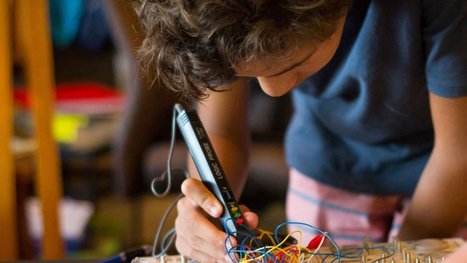



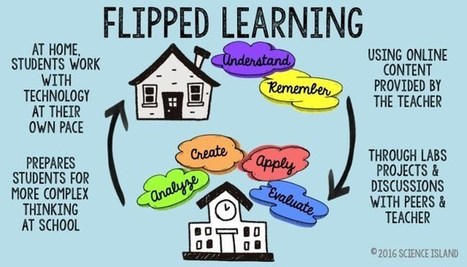
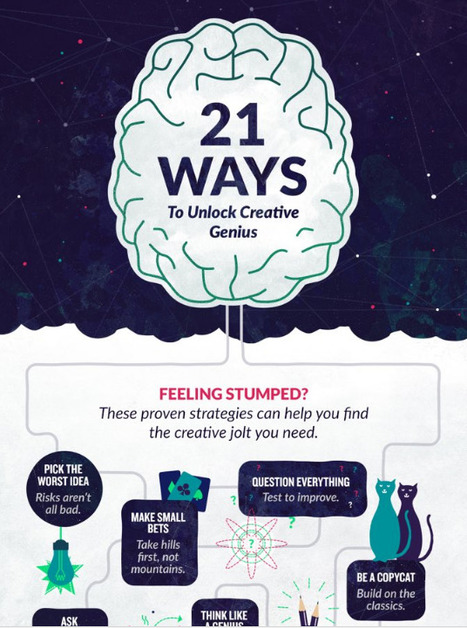
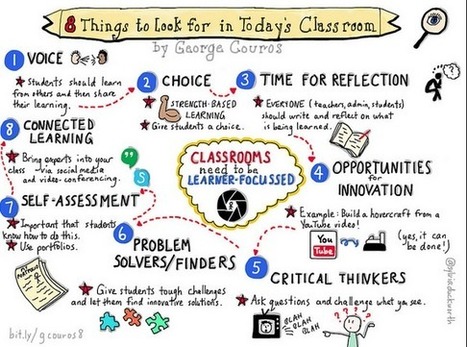

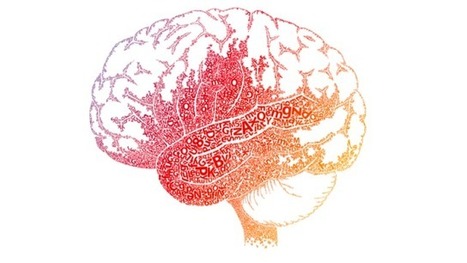



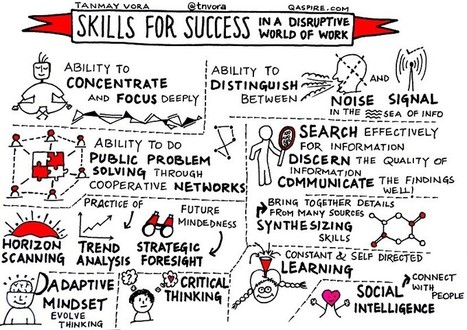



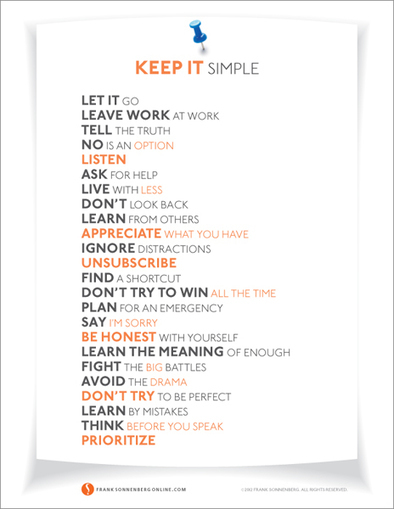




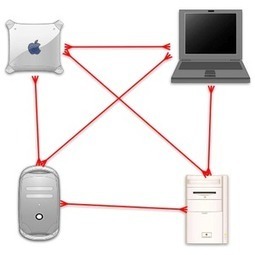
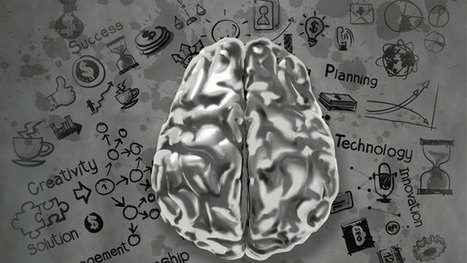

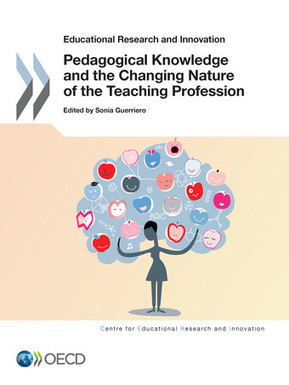


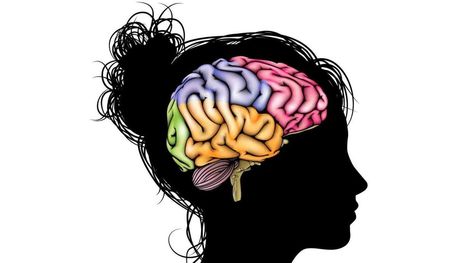

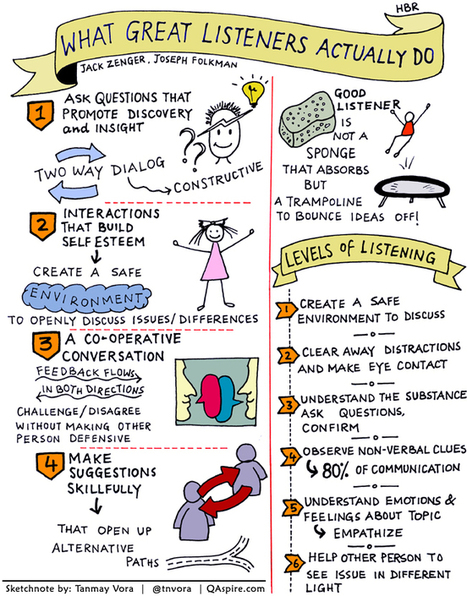

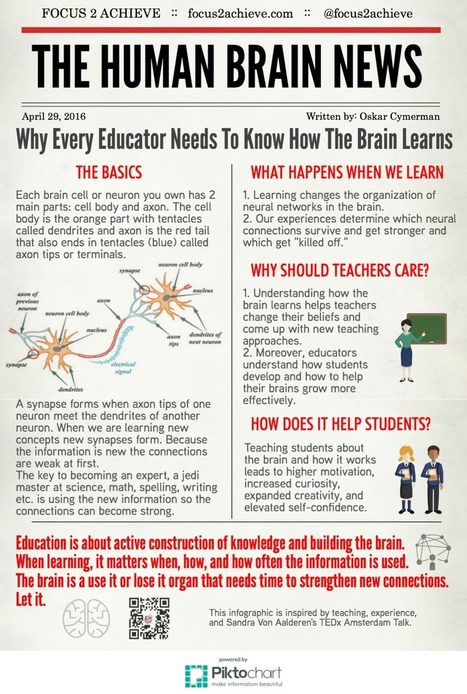





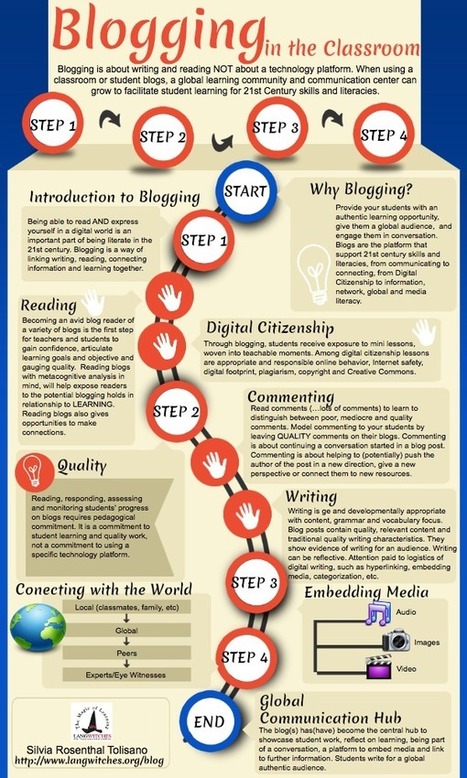

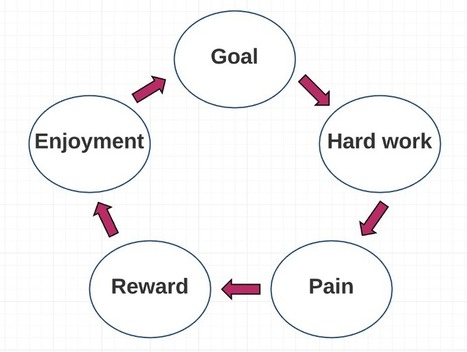






If students use their hands as well as their minds, they're essentially learning twice.
Learn more / En savoir plus / Mehr erfahren:
https://gustmees.wordpress.com/?s=maker
https://www.scoop.it/t/21st-century-learning-and-teaching/?&tag=Ideas+for+makerspaces